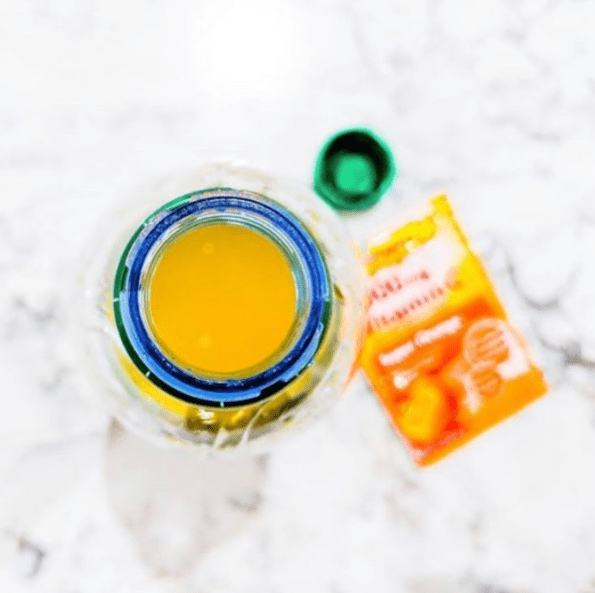With all the sickness going around lately, people are searching high and low for ways to improve their immune systems. And vitamin C is well-known as a nutrient that improves immune function. This being the case, many people will take vitamin C supplements, such as Emergen-C in an effort to improve immunity and decrease their chances of getting sick. But does this method really work? Are people just wasting their money? Are there any potential dangers to such high doses of vitamin C? Let’s find out.
What is the Recommended Amount of Vitamin C?

The recommended daily allowance (RDA) of vitamin C for the average adult is 75 mg for women and 90 mg for men. However, it’s worth noting that vitamin C is a water-soluble vitamin. With water-soluble vitamins, it is difficult to reach toxicity levels because the body is usually able to simply excrete any extra through the urine. Therefore, consuming higher amounts is not usually harmful. The point at which a vitamin or mineral amount becomes toxic is called the Tolerable Upper Level or UL. The UL for vitamin C in the average adult is 2,000 mg for both men and women. This means that if someone is staying between the RDA and the UL, they are unlikely to see harmful effects from vitamin C toxicity.
How Much Vitamin C is in Emergen-C?

Emergen-C has come out with a bunch of different products over the years, most of which are based around vitamin C supplementation. Their “Everyday Immune Support” product is a dissolvable powder with multiple flavors. This is one of their most popular products and contains 1,000 mg of vitamin C per packet. But they have other products with amounts ranging from 750 mg to 1,000 mg. This means that with just one serving, you would have over 10 times the required amount and would already be halfway to the toxicity level. Is this something to be concerned about?
Is This Helpful or Harmful?
So what is the verdict on Emergen-C supplementation? Is it helpful? Harmful? Well, there are many different factors that come into play, so really, it could be either. While there is a wide range between the RDA and the UL, there is always the possibility of toxicity. Vitamin C toxicity includes symptoms such as diarrhea, nausea, abdominal pain, and other GI issues. There have also been studies done that indicate excessive vitamin C may increase risk of cardiovascular disease, kidney stones, DNA damage, and other health problems. While these effects are unlikely for most people, it is important to remember that nutrient toxicity can potentially be very harmful.

There are particular groups at increased risk for deficiency including smokers, those with absorption issues, and those with certain chronic diseases. These individuals may require an increased amount of vitamin C each day. In these situations, a vitamin supplement may be beneficial to prevent deficiency. But it is always important to discuss any supplements you’re taking with your doctor and/or dietitian, as some foods and medications may interact and cause further health problems.
In general, if you are thinking about taking a vitamin C supplement such as the popular Emergen-C, it’s important to consider your current diet. Unfortunately, according to the 2015-2020 Dietary Guidelines for Americans, the average American does not consume an adequate amount of vitamin C from food. This is usually due to an overall unhealthy eating pattern, especially one lacking in fruits and vegetables. If you already eat a generally healthy and balanced diet that includes a variety of fruits and vegetables, there is no need for you to supplement on top of that. If you do not, then consider introducing food sources of vitamin C first before resorting to a supplement. There are many food sources of vitamin C available. It’s also important to remember that supplements, including Emergen-C, are not regulated by the FDA. This means that they do not require specific product testing or any science-based proof to back their health claims. Be weary of this anytime you purchase these types of products.
As a (soon-to-be) dietitian, I always recommend turning to food first and supplementing only when it is impossible to get the adequate amount from food alone. This avoids the issue of reaching toxic levels and encourages a diet with a variety of macro- and micronutrients. It is always important to carefully consider what you are putting in your body, and supplements are no exception. So be careful and take the time to determine what’s best for you.


4 responses to “Does Emergen-C Actually Work?”
Thanks for the article Georgia, very informative. Along these same lines, I’ve always heard that zinc is a good immune system booster. A quick and dirty blog on that would be appreciated!
Thanks for the suggestion Todd! And thank you for reading (:
Love emergen-c and kidz emergen-c. Works great for us!
Good to know! Thanks for sharing! (: